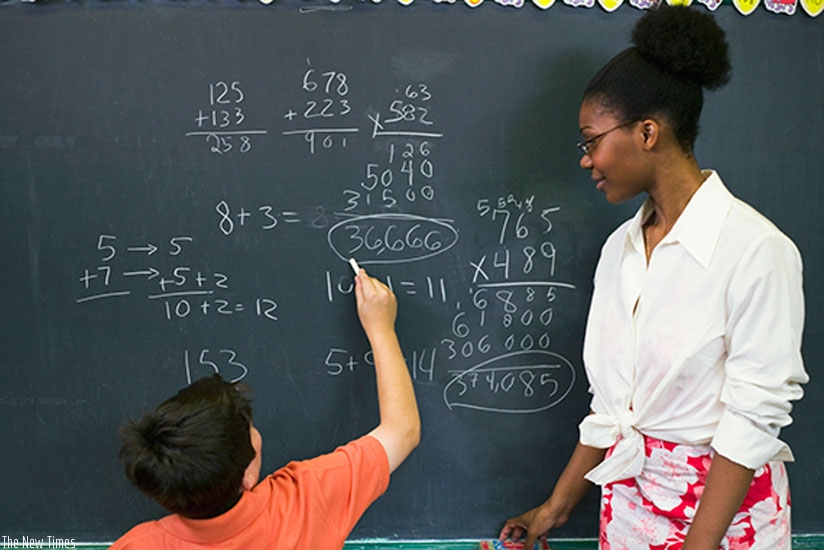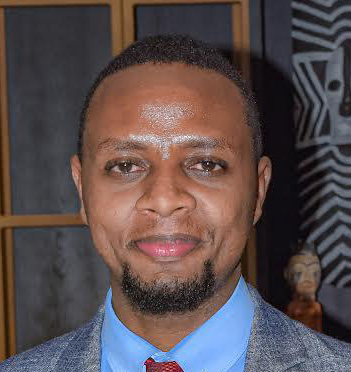During a recent workshop at the University of Rwanda’s College of Education, mathematics lecturers from across East Africa under the the East African Mathematics Education and Research Network (EAMERN) met to brainstorm on how best to make the teaching and learning of mathematics easier and more enjoyable.


During a recent workshop at the University of Rwanda’s College of Education, mathematics lecturers from across East Africa under the the East African Mathematics Education and Research Network (EAMERN) met to brainstorm on how best to make the teaching and learning of mathematics easier and more enjoyable.
The one-day session, which was aimed at creating sustainable regional networks for improving mathematics education and building capacity in the East African region, highlighted the strategies that can help in the learning and teaching of maths as well as raising people’s interest towards it.
Dr Alphonse Uworwabayeho, the chairman of EAMERN, who’s also a senior lecturer of mathematics at UR’s College of Education, explained that the team had convened to set up a guide to aid easy learning and teaching of mathematics in the region.
"A lot of people do not like mathematics, not because they don’t have the interest in it, but because of the way they are taught. We want to find a way to teach these students basing on their culture and environment,” he said.
Understanding the mathematics phobia?
Indeed, Uworwabayeho’s words underscore the dilemma surrounding the teaching and learning of mathematics.
But unknown to most people is the fact that mathematics is a human language just like other languages and it helps people to communicate with each other in everyday life.
Emmanuel Muvunyi, the director general in charge of examinations at Rwanda Education Board, says most people consider mathematics and many other sciences a hard subject, and that generation after generation, people grow up disliking it or misunderstanding the true underlying essence behind it.
"Most people consider maths a challenging subject. In education pedagogy, the reasons may vary from the attitude of teachers to students, students to teachers and students to the subject. However, to be specific, I can simply call this general issue a misconception. People need to understand that it is a foundation of all disciplines; it is applied in life everywhere - from the way we work, we walk, we communicate and how we transact businesses, among others,” he explained.
Fidèle Muhirwa, a science teacher at Groupe Scolaire Kicukiro, says many students choose not to pursue maths and other science subjects due to fear.
"When you look at it in the wider context, students don’t hate maths and other sciences but they think if they go further with them, they won’t earn as much money as other professionals. But if you can come to my class and ask how many students want to learn maths or chemistry, the majority will buy the idea, but when it comes to registration during the national exams a few of them would hardly take the decisions,” Muhirwa explains.
He notes that for the girls, the trend is not the same as it was years back.
"Girls now participate like boys; even many perform better than boys. I think the reason they weren’t interested in science subjects was because they had no confidence in themselves as well as not having people to show them the way. Now, many women are in different high positions, this gives girls the courage to feel that they can do anything,” he added.
Ariane Ishimwe, a Senior 5 student at College de l’Espoir, studies maths, computer, and economics and she says from her experience, taking up maths is not as difficult as many girls think.
"Most of the girls hate to study maths and other science subjects, not because it’s hard but because people talk ill of these disciplines. To be honest, the majority of girls who dislike maths do so either because someone told them that it was the hardest subject or due to peer influence,” she says.
Ishimwe notes for one to excel in maths, they must work hard, be patience and do regular revision and discussions.
"Science subjects need daily practices. However, not having role models and mentors may also discourage girls in general from taking up maths,” she added.
Researchers and educationists admit that a student who fails maths may not do well in other subjects, particularly sciences.
All subjects have got elements of maths and students with no basic knowledge of the subject will always find it tough to sail through.
Way forward
The EAMERN team agreed to enhance knowledge skills and attitude in maths, promote ICT integration, and create awareness of key issues that impact the achievement of mathematics education, connect existing networks and promote research, among others.
Dr Angelina Bijura from Aga Khan University in Dar es Salaam, said, addressing the challenges such as the lack of resources and professional development among the students and teachers will make the education of mathematics more interesting.
"As we set up the activities for the regional network, it is more important that we include girls to participate in classrooms during lessons and engage them in career guidance regarding mathematics. One of the reasons why girls worldwide do not like maths is because of how challenging the subject appears to be; but it is possible that basing on our culture we can raise their interest,” she said.
Muvunyi also says the various ministries of education and other education agencies have plans to put emphasis on numeracy and literacy so that students can get used to them at the early age.


